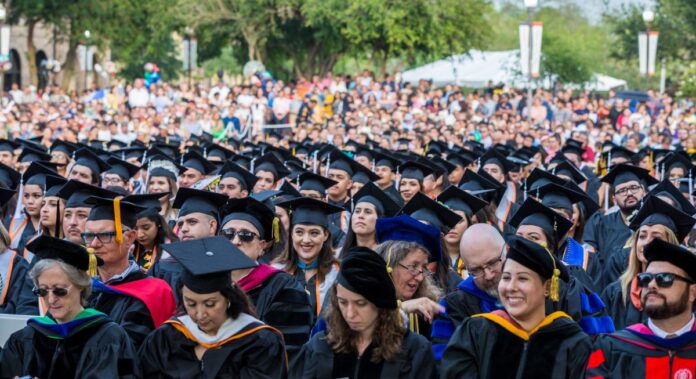BY Gail Fagan
The University of Texas Rio Grande Valley will receive $1.6 million of $8.2 million allocated by the UT System Board of Regents to fund innovative campus-based projects that enhance student success.
UTRGV’s proposal, which establishes college-based success teams and student compacts, was selected in a competitive process and evaluated based on its prospect of bringing about extensive change in providing new, outcomes-focused, data-driven and sustainable approaches to student success.
“We are excited that the UT System Regents have provided support for our plan to strategically focus our efforts on student success at UTRGV,” said Dr. Kristin Croyle, UTRGV vice president for Student Success. “These funds will go a long way in helping us achieve our goal of serving students in ways that support their growth and learning and keep them on track to graduation.”
UTRGV was among five UT System academic institutions that received the funding in response to a Request for Proposals. The proposals were reviewed by higher education experts outside of Texas, as well as by UT System leaders.
UTRGV’s proposal will initiate a Student Success Team (SST) in each academic college, with college and university staff and faculty that bring together expertise about academics, advising, personal and professional development, and career success. Each Student Success Team will work closely with students in the college to design and implement specific programs that will best support the success of their students.
“I am thrilled the UT System chose to support our college Student Success Team model,” said Dr. Linda Matthews, professor of management, member of the Student Success Steering Committee and chair of the Robert C. Vackar College of Business and Entrepreneurship SST. “College level faculty and staff working closely with student success experts will allow us to focus on specific challenges and opportunities within our college. Emerging promising practices can then be shared with other colleges to aid their success.”
Croyle said early SST work will focus on supporting students from year to year, helping students overcome barriers to graduation, and student success in early first- and second-year courses.
The teams also will design Student Compacts to be implemented over the next two years that will provide university guidance and support to students in staying on track for their degrees and preparing for post-graduation success.
“This proposal is designed to support a new, intentional approach that engages the entire campus in a community of care surrounding our students, both to improve their academic experience at UTRGV and their progress to degree,” Croyle said. “With UTRGV still in its first years of existence, this is the right time to build both an enduring structure and immediate action-oriented initiatives that will help our students achieve at unprecedented levels.”
GRADUATION HELP DESKS
As part of $10 million allocated by the Board of Regents in February, each of the UT System’s eight academic institutions also will receive funding to support Graduation Help Desks.
The help desks, modeled after a successful program at UT Austin, provide staff and infrastructure to help students graduate on time by connecting them with the right people and resources across campus.
“We are excited about developing a UTRGV Graduation Help Desk this coming year. We are already committed to helping students get the courses they need to graduate, but sometimes students are unsure about who they can turn to if they need help finding those courses. The Graduation Help Desk will help provide that support,” Croyle said.
In a release from the UT System regarding the proposals funded, Regent Sara Martinez Tucker, who helped review the awards, said the Board of Regents is “sharply focused on rewarding excellence and investing in strong academic support for students.”
“The best return on investment – to students, families and the State of Texas – comes when we do everything we can to help students enroll in our institutions, work hard and complete their degrees in a timely fashion. These student success grants are designed to accomplish that,” Tucker said.
All of the successfully-funded proposals address one or more of three research-identified pillars that are the foundation of the UT System’s initiative to Make a Quantum Leap in Student Success – finances, advising and belonging.
The student success effort is additionally aligned with the Texas Higher Education Coordinating Board’s 60X30 Plan, which calls for at least 60 percent of Texans ages 25-34 to have a certificate or degree by 2030.




